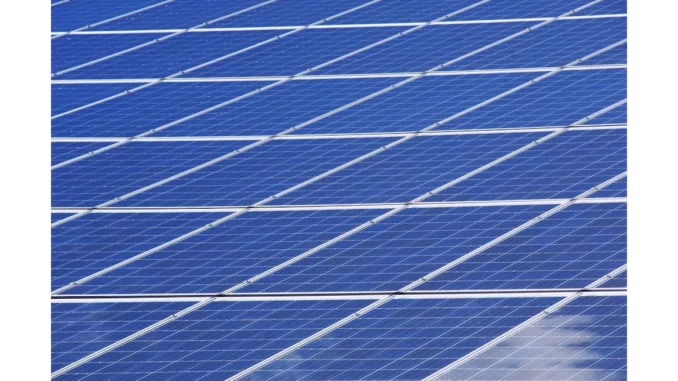
In a recent dialogue with Emma Wilkins, a senior climate policy analyst at the Department for Business, Energy & Industrial Strategy, we explored the findings of the International Energy Agency’s (IEA) latest review concerning the United Kingdom’s energy policies. Emma’s insights shed light on the nation’s progress and the obstacles it faces on its path towards a sustainable energy future.
Discover how Focus360 Energy aids sustainable development with Sustainability Statements.
Emma began by underscoring the importance of IEA reviews. “These reviews are crucial as they provide an independent assessment of our progress and offer recommendations that refine our strategies. They also facilitate the exchange of best practices with other member countries, which is invaluable,” she explained. The latest review, titled “The United Kingdom 2024: Energy Policy Review,” presents a largely positive picture of the UK’s efforts in reducing emissions. “The UK has made substantial strides in emissions reductions, driven by a robust climate framework. We were one of the first advanced economies to legally adopt a net-zero target, which has provided a strong foundation for our policies,” Emma noted.
One of the review’s standout achievements is the UK’s leadership in clean energy deployment, particularly in the realm of offshore wind. “Our success in offshore wind is a testament to our strong climate policies, including carbon pricing and the establishment of the independent Climate Change Committee. This body has statutory authority to track the government’s progress towards its climate targets, ensuring accountability,” Emma elaborated. Additionally, the review commends the UK for meeting all its five-year ‘carbon budgets’ to date. These interim emissions reduction goals serve as critical milestones on the path to the 2050 net-zero target. “Meeting these carbon budgets has been no small feat. It’s required a comprehensive transformation of our electricity system, including a rapid decline in coal-fired generation and a significant expansion of renewable energy sources,” Emma highlighted.
Nevertheless, the review is not without its critiques. “While we’ve made great progress, the report rightly points out that we are still heavily reliant on fossil fuels, particularly in electricity generation, buildings, transport, and industrial sectors. To stay on track with our carbon budgets and climate targets, we need to make greater strides in these end-use sectors,” Emma acknowledged. One of the UK’s ambitious targets is the decarbonisation of electricity generation, supported by rapid growth in wind, solar, and nuclear power. “Renewables now account for over a fifth of our electricity generation, which is a three-fold increase since 2012. This success is largely due to our auction scheme for renewable energy deployment, known as Contracts for Difference,” Emma explained.
Looking ahead, the UK faces the challenge of ensuring the continued expansion of low-emissions generation to displace unabated gas, replace closures in the nuclear fleet, and meet the growing power demand driven by electrification. “We also need to support the massive buildout of electricity infrastructure, reduce administrative barriers, and speed up grid connections to enable new projects to come online,” Emma added. The review also emphasises the need for energy efficiency upgrades in the UK’s building stock, which is among the oldest in Europe. “Our buildings contribute over a quarter of the country’s energy-related emissions. We need a sustained focus on upgrading existing buildings and transitioning fossil fuel heating systems to electricity-based heat pumps,” Emma pointed out.
Transport remains the largest emitting sector in the UK, heavily reliant on oil. “We have ambitious plans for zero-emissions vehicles, and the report encourages us to maintain a sustained focus on implementation,” Emma shared. The industrial sector, a significant energy consumer and contributor to emissions, is another area where the UK needs to intensify efforts. “Our industrial sector accounts for around a fifth of UK energy consumption and 14% of emissions. Supporting energy efficiency and electrification in industry, enabled by grid expansion and connections to industrial sites, is crucial,” Emma asserted. The commercialisation and adoption of new technologies, such as carbon capture, utilisation and storage, and hydrogen fuels, can play a pivotal role in industrial decarbonisation. “These technologies are essential for reducing emissions in hard-to-abate sectors. We need to invest in and support their development and deployment,” Emma emphasised.
The IEA’s latest review underscores that the UK is making strong progress in its energy transition. “We have opportunities to accelerate our efforts and seize the benefits of the growing global clean energy economy. Our first-mover advantage and robust legal frameworks position us well, but we must continue our shift from planning to rapid implementation to meet our climate targets,” Emma concluded. The conversation with Emma Wilkins illuminated the UK’s commitment to transforming its energy system and the ongoing challenges that need to be addressed. The IEA review serves as a valuable tool, guiding the UK in its mission to achieve a sustainable and resilient energy future.


Be the first to comment